
Wacken Open Air is a heavy metal music festival, held annually since 1989 on the first weekend of August in the village of Wacken in Schleswig-Holstein, Germany. Almost all styles and subgenres of hard rock and metal are represented and hosted. It is now one of the largest heavy metal festivals in the world and one of the largest open-air festivals in Germany. Between 2011 and 2018, the number of attendees was around 85,000, 75,000 of whom were paying visitors. Due to the COVID-19 pandemic, there were no 2020 and 2021 editions of Wacken Open Air.

The Olympiahalle(English: Olympic Hall) is a multi-purpose arena located in Am Riesenfeld in Munich, Germany, part of Olympiapark. The arena is used for concerts, sporting events, exhibitions or trade fairs. The official seating capacity for the arena varies from some 12,500 to 15,500.
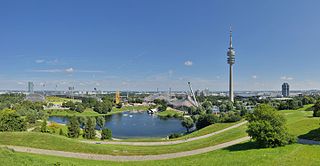
The Olympiapark in Munich, Germany, is an Olympic Park which was constructed for the 1972 Summer Olympics. Located in the Oberwiesenfeld neighborhood of Munich, the Park continues to serve as a venue for cultural, social, and religious events, such as events of worship. It includes a contemporary carillon. The Park is administered by Olympiapark München GmbH, a holding company fully owned by the state capital of Munich. The Olympic Park Munich was also considered to be an architectural marvel during the 1972 Olympics in Munich, Germany.

Oktoberfest is the world's largest Volksfest, featuring a beer festival and a travelling carnival, and is held annually in Munich, Bavaria, from mid- or late-September to the first Sunday in October, with more than six million international and national visitors attending the event. Locally, it is called d'Wiesn, after the colloquial name for the fairgrounds, Theresienwiese. Oktoberfest is an important part of Bavarian culture, having been held since the year 1810. Other cities across the world also hold Oktoberfest celebrations that are modeled after the original Munich event.

Toshio Hosokawa is a Japanese composer of contemporary classical music. He studied in Germany but returned to Japan, finding a personal style inspired by classical Japanese music and culture. He has composed operas, the oratorio Voiceless Voice in Hiroshima, and instrumental music.
Siegfried Mauser is a German pianist, academic and music manager. In 2016, 2017, and 2018, German courts convicted him as a multiple sex offender.

Georg Enoch Robert Prosper Philipp Franz Karl Theodor Maria Heinrich Johannes Luitpold Hartmann Gundeloh Freiherr von und zu Guttenberg was a German conductor. He also owned the large winery estate Weingut Reichsrat von Buhl. He founded musical ensembles for performances of sacred choral works, and the Herrenchiemsee Festival. In 1975, he co-founded the BUND, a German organization dedicated to protecting the natural environment.

The Kissinger Sommer is a classical music festival held every year in the summer in the city of Bad Kissingen in Bavaria, Southern Germany.

Jörg Widmann is a German composer, conductor and clarinetist. In 2023, Widmann was the third most performed living contemporary composer in the world. Formerly a clarinet and composition professor at the University of Music Freiburg, he is composition professor at the Barenboim–Said Akademie. His most important compositions are the concert overture Con brio, the opera Babylon, an oratorio Arche, Viola Concerto, Kantate and the trumpet concerto Towards Paradise. Widmann has written musical tributes to Classical and Romantic composers. He was awarded the Bavarian Maximilian Order for Science and Art in 2018 and the Bach Prize of the Free and Hanseatic City of Hamburg in 2023. He was Gewandhaus Composer of the Gewandhaus Orchester Leipzig and Composer in Residence for the Berlin Philharmonic.

Rhapsodie Macabre is a composition for piano and string quartet in one movement by Graham Waterhouse, written in 2011 as a homage to Franz Liszt. It was first performed at a Liszt festival of the Gasteig, Munich, with the composer playing the cello part.
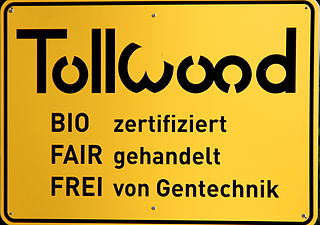
The Tollwood Festival is a festival which takes place semi-annually in the Olympiapark (summer) or on the Theresienwiese (winter) in Munich.
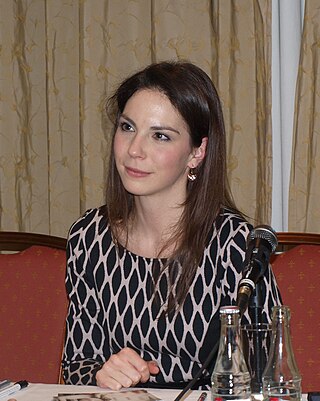
Hanna-Elisabeth Müller is a German soprano in opera, concert and recitals.
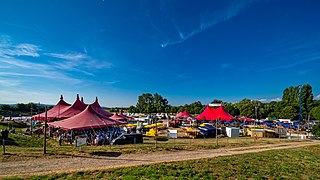
The Zelt-Musik-Festival (ZMF) has taken place every June and July since 1983 in Freiburg im Breisgau, Germany. It lasts three weeks and counts up to 120,000 visitors each year. The program is very broad. There is music, art, theater, cabaret and sport in different tents and on open-air stages. According to the organizer it is the biggest and oldest music festival in Baden-Württemberg. Over the years, more than 600 regional and international artists offered a diverse program consisting of classic, jazz, rock, pop and world music, cabaret and children's program. Also, many newcomers have been promoted.

Am Riesenfeld is the westernmost of the three subdistricts of the Munich city district 11 Milbertshofen-Am Hart.
Daniel Behle is a German classical composer and operatic tenor. He has performed at international opera houses and festivals, and has recorded both operas and Lieder recitals.

SAP Garden is a planned 12,500-seat indoor arena, to be built in Olympiapark, Munich. The arena is expected to be completed summer 2024 and it will be ready for use for the 2024/25 season. The site will be built at the location of the former Radstadion which was demolished in 2015. It will become the home rink to ice hockey team EHC Red Bull Munich and home court to basketball team Bayern Munich.

Der Ring in Minden was a project to stage Richard Wagner's cycle Der Ring des Nibelungen at the Stadttheater Minden, beginning in 2015 with Das Rheingold, followed by the other parts in the succeeding years, and culminating with the complete cycle performed twice in 2019. The stage director was Gerd Heinz, and Frank Beermann conducted the Nordwestdeutsche Philharmonie, playing on the stage of the small theatre. The singers acted in front of the orchestra, making an intimate approach to the dramatic situations possible. The project received international recognition and was compared favourably to the Bayreuth Festival.

Joachim Kaiser was a German musician, literature and theatre critic and senior editor in the feuilleton of the Süddeutsche Zeitung. Starting 1977 to 1996 he held a seat as a professor of history of music at the State University of Music and Performing Arts Stuttgart.
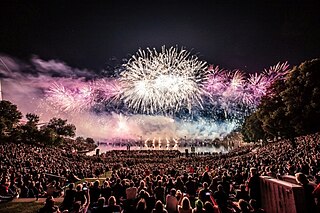
The Münchner Sommernachtstraum is a show event that has been held annually in July since 2004 in Olympiapark.

Spannungen is an annual summer festival for chamber music in Heimbach, North Rhine-Westphalia, Germany, founded by pianist Lars Vogt in 1998. It is subtitled Musik im Kraftwerk Heimbach. Performances take place over one week in the power station Kraftwerk Heimbach. Many of the concerts with friends and colleagues were recorded live, broadcast by Deutschlandfunk and recorded for label Avi.




















